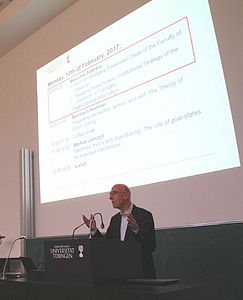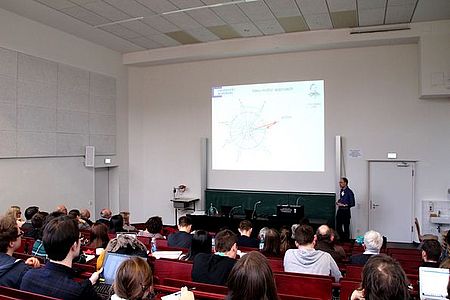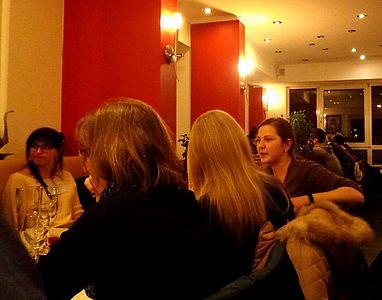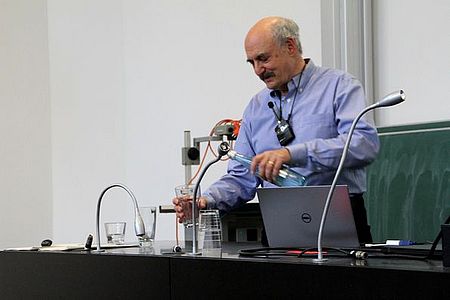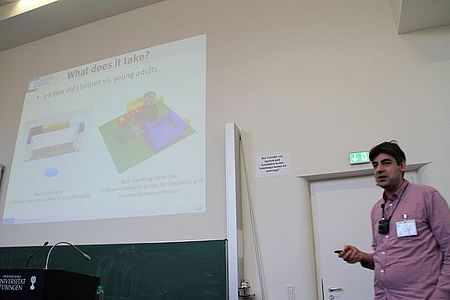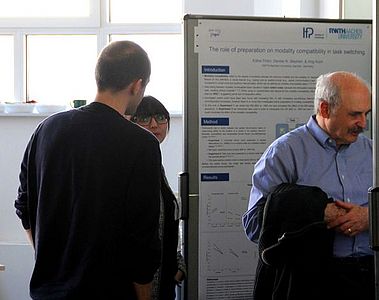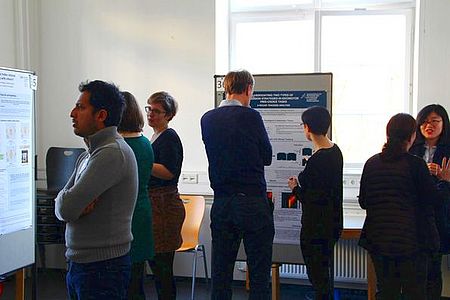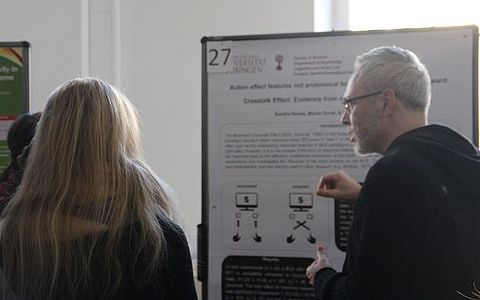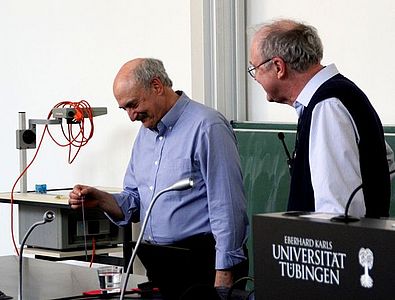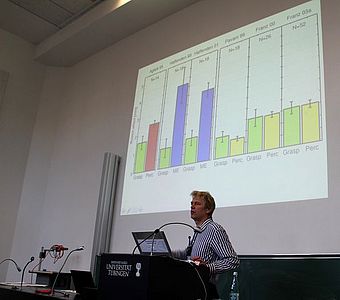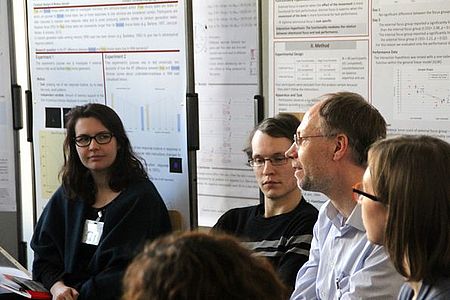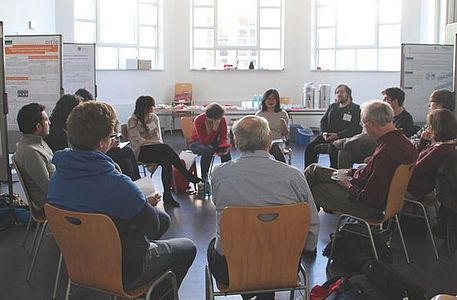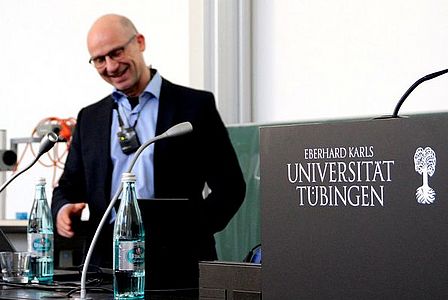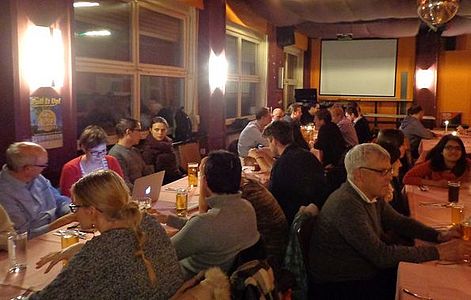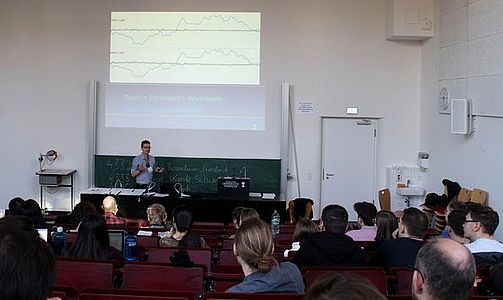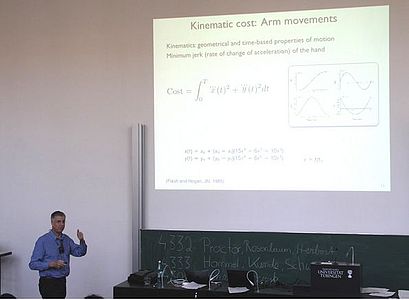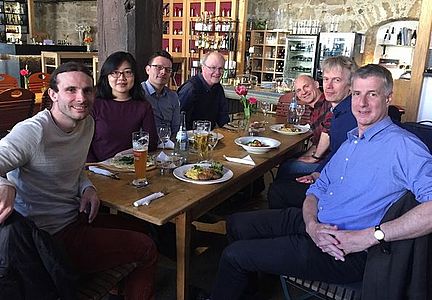Winter School "Human Action Control" in Tübingen
Winter School 2017 "Human Action Control - Current Theories and Debates"
While Psychology was initially not much concerned with action- and motor-related research (see Rosenbaum, 2005), this situation has luckily changed. Nowadays, the field of human action control – that is, how humans learn, address, select, execute, and monitor bodily movements – has gained much interest over the last decades, not only in Cognitive Psychology, but also in related fields like Cognitive Science, Movement Sciences, Philosophy, Robotics and others. Accordingly, many young scientists from various disciplines are working on action-related topics during their PhD.
This Winter School offered young scientists the opportunity to learn about current hot topics and theoretical developments in action-related research, and about 40 PhD students from UK, Hungary, Spain, Belgium, and Germany attended the Winter School. The selection of topics was guided by two dominating theories in the fields:
- The Theory of Event Coding (TEC; Hommel, Müsseler, Aschersleben & Prinz, 2001) is based on the insight that perceptual and motor codes are not disctinct but both domains are represented within a common domain. In line with Ideomotor Theory, to address an action means to activate an anticipatory representation of the desired perceptual outcome of this action, the so-called "action effect". Since its initial formulation, TEC has been applied to a variety of fields (multitasking, social contexts, ...), and several controversial issues remain as well.
- Whereas TEC is more concerned with action planning, the Perception-Action Model (PAM; Milner & Goodale, 1995) addresses the execution, guidance, and monitoring of visually guided movements. Milner and Goodale attributed to the ventral pathway the function of vision for perception, and to the dorsal pathway the function of vision for action. This distinction has initiated a bulk of research, but serious criticism has also been formulated.
Although these two theories are often discussed separately, this Winter School brought experts on these theories together. In addition, lectures from a developmental perspective, a clinical perspective, an applied perspective, and formal modelling approaches were included. The following speakers presented their points of view (in alphabetical order; see here for the full program):
- Prof. Volker Franz (University of Tübingen): Perception vs. action: What is the overall, functional architecture of the human visual system?
- PD Oliver Herbort (University of Würzburg): Anticipatory actions
- Prof. Bernhard Hommel (University of Leiden, NL): Integrating perception, action, and self: The Theory of Event Coding
- Jun.-Prof. Markus Janczyk (University of Tübingen): Ideomotor theory and dual-tasking: The role of goal-states for dual-task interference
- Prof. Iring Koch (RWTH Aachen): Ideomotor mappings in the cognitive control of actions and tasks
- Prof. Wilfried Kunde (University of Würzburg): Effect-based action control in social contexts
- Dr. Warren Mansell (University of Manchester, UK): Perceptual Control Theory (PCT): Motor control as the control of perception
- Prof. Robert W. Proctor (Purdue University, USA): Action selection in physical and cyber environments
- Prof. David A. Rosenbaum (University of California, USA): Will the science of mental life and behavior finally embrace motor control?
- Prof. Thomas Schenk (LMU Munich): The neuropsychology of perception and action
- Prof. Gudrun Schwarzer (University of Gießen): The interplay of perception and action during child development
- Prof. Daniel Wolpert (University of Cambridge, UK): Computations in human sensorimotor control

